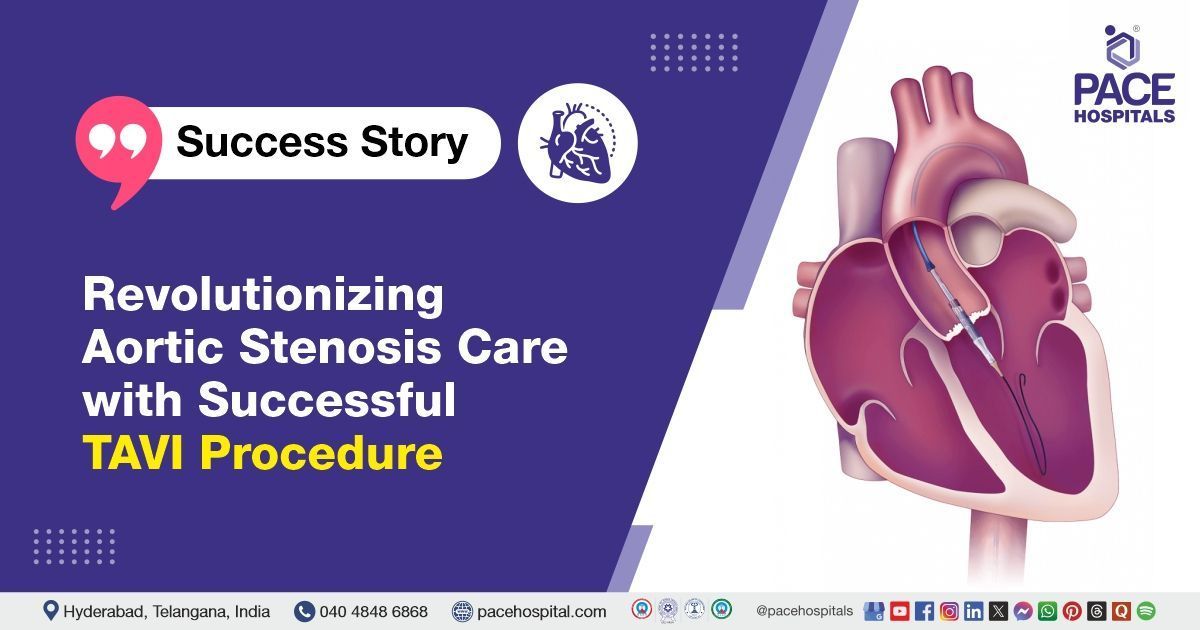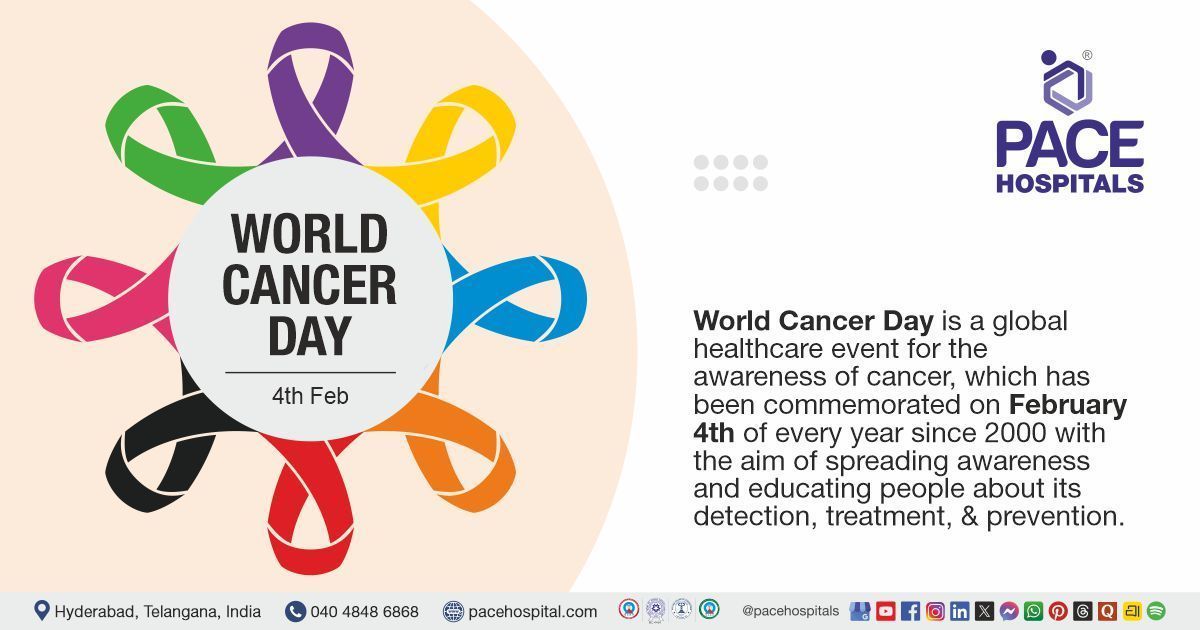Revolutionizing Aortic Stenosis Care with a Successful TAVI Procedure
PACE Hospitals
The Cardiology team at PACE Hospitals successfully performed a Transcatheter Aortic Valve Implantation (TAVI) to replace a narrowed or damaged aortic valve. This minimally invasive procedure treats aortic stenosis by implanting a new valve, offering an alternative to open-heart surgery while reducing complications.
Chief Complaints
A 70-year-old female patient presented to the cardiology department, at
PACE Hospitals, Hitech City, Hyderabad, with complaints of a known case of severe aortic stenosis was admitted for the transcatheter aortic valve implantation (TAVI) procedure to treat the condition.
Medical History
The patient had a known medical history of
hypertension and
thyroid disorder.
General examination
Upon admission to PACE Hospitals, the patient's vital signs were stable. On general examination, the patient was conscious and coherent. The cardiovascular system (CVS) showed normal heart sounds (S1, S2+). The respiratory system (RS) demonstrated bilateral air entry (BAE+) with normal vocal breath sounds (NVBS). The central nervous system (CNS) was non-focal with no detected deficits (NFND) (no specific localized neurological deficits or abnormalities were observed). Physical examination of the abdomen (P/A) indicated a soft and non-tender condition.
Diagnosis
Following a comprehensive examination, the patient was identified as a known case of severe aortic stenosis and had previously undergone Transcatheter Aortic Valve Implantation (TAVI) to replace the diseased valve and restore normal blood flow. The patient was admitted for a repeat TAVI procedure due to recurring symptoms.
To confirm the condition, doctors conducted a series of diagnostic tests and diagnosed the patient with Degenerative Aortic Valve Disease, a condition marked by progressive narrowing and dysfunction of the aortic valve due to age-related calcification.
Surgical Procedure
Following discussions with Dr. Seshi Vardhan Janjirala, Consultant Cardiologist, it was determined that Transcatheter Aortic Valve Implantation (TAVI) procedure would be the most suitable treatment option for the patient.
A second TAVI procedure was performed due to the deterioration or failure of the previously implanted valve over time. The potential causes of this failure included:
- Structural Valve Degeneration (SVD): Calcification, thickening, or dysfunction of the initial valve, leading to restricted blood flow or leakage.
- Paravalvular Regurgitation: Improper sealing of the first valve, causing blood leakage around it and necessitating corrective intervention.
- Patient-Prosthesis Mismatch: An initially implanted valve that was too small for the patient’s anatomy, resulting in suboptimal functionality.
- Persistent or Recurrent Symptoms: Continued issues such as breathlessness, fatigue, or chest pain, indicating the need for further intervention.
By performing a Valve-in-Valve TAVI, doctors successfully replaced the failing prosthetic valve using a minimally invasive approach, thereby avoiding the risks associated with open-heart surgery and ensuring better patient outcomes.
Before the procedure, a comprehensive cardiology workup and all necessary investigations were conducted to evaluate the patient’s condition. Under aseptic conditions, Transcatheter Aortic Valve Implantation (TAVI) was successfully performed without complications. Postoperatively, the patient was closely monitored overnight in the ICU under the supervision of intensivists. Following a stable recovery, the patient was discharged in good condition.
Postoperative Care
Postoperatively, the patient was closely monitored overnight in the ICU under the supervision of intensivists. The recovery following the surgery was uneventful, with no complications. Following a stable recovery, the patient was discharged in good condition.
Discharge Medications
Upon discharge, the patient was prescribed antibiotics, antiplatelets, anticoagulants, thyroid medication, haematinics, multivitamin supplements, and vitamin D supplements.
Emergency Care
The patient was informed to contact the Emergency Ward of PACE Hospitals, Hyderabad if they observed any symptoms such as fever, abdominal pain, or vomiting.
Review notes
The patient was advised to schedule a follow-up appointment with Dr. Sashi Vardhan Janjirala in the OPD after 1 week.
Minimally Invasive Solutions for Severe Aortic Stenosis: The Role of TAVI
Transcatheter Aortic Valve Implantation (TAVI) has revolutionized the management of severe aortic stenosis, a condition characterized by the narrowing of the aortic valve, which restricts blood flow from the heart and can lead to serious complications if left untreated. TAVI offers a minimally invasive alternative to traditional open-heart surgery, making it an ideal option for patients at high surgical risk due to age or underlying health conditions.
This procedure involves implanting a new valve through a catheter, typically inserted via the groin or chest, to restore normal blood flow, alleviate symptoms such as fatigue and shortness of breath, and enhance overall heart function. With faster recovery times and a lower risk of complications compared to conventional surgery, TAVI has transformed the treatment landscape for severe aortic stenosis, providing patients with a safer and more effective solution.
Share on
Request an appointment
Fill in the appointment form or call us instantly to book a confirmed appointment with our super specialist at 04048486868
Appointment request - health articles
Recent Articles











